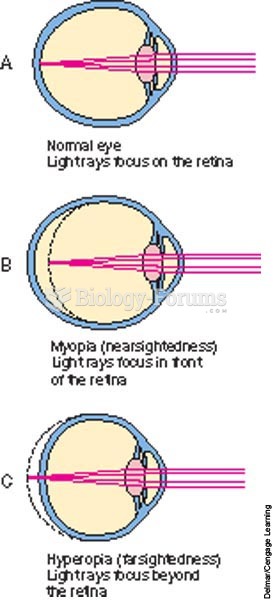|
|
|
The first oncogene was discovered in 1970 and was termed SRC (pronounced "SARK").
Bacteria have flourished on the earth for over three billion years. They were the first life forms on the planet.
Though methadone is often used to treat dependency on other opioids, the drug itself can be abused. Crushing or snorting methadone can achieve the opiate "rush" desired by addicts. Improper use such as these can lead to a dangerous dependency on methadone. This drug now accounts for nearly one-third of opioid-related deaths.
In 1835 it was discovered that a disease of silkworms known as muscardine could be transferred from one silkworm to another, and was caused by a fungus.
Medication errors are more common among seriously ill patients than with those with minor conditions.







